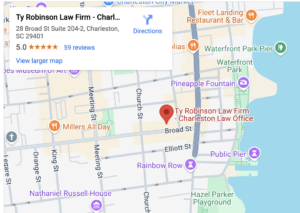Ty Robinson | February 24, 2025 | Car Accidents

What is a CDL needed for? Anyone who wishes to drive a large commercial vehicle has to earn a CDL, which stands for “commercial driver’s license.” This includes large delivery trucks, semi trucks, hazardous waste trucks, buses, and other vehicles that transport 16 or more passengers.
Commercial truck operators have to pass practical and written tests. Both of these tests are more rigorous than those for a standard driver’s license. However, a CDL doesn’t automatically allow you to drive any type of large commercial vehicle. There are different classes of CDL as well as different endorsements.
Why Is A Special License Needed?
Driving a bus full of people or a multi-axle truck isn’t the same as driving a car. These vehicles are harder to maneuver and larger than passenger cars.
Around 148,000 large truck accidents happened in 2024 alone, according to the FMCSA. Over 50,000 of these caused injuries. Trucking accidents may not be more dangerous for the driver, but they could cause serious injuries to other road users or passengers. In fact, data from the National Safety Council shows that truck-involved casualties are on the rise.
Safety is the main reason that drivers of large vehicles must hold CDLs. Concerns for the safety of others on the road prompted the federal government to enact the Commercial Motor Vehicle Safety Act (CMVSA) in 1986. Before the CMVSA, each state set its own safety standards. The CMVSA established minimum licensing standards and qualifications across the United States.
The extra training and education needed to acquire a CDL help improve safety and protect other people as well as the environment. Accidents involving hazardous materials can devastate communities.
Types Of Commercial Licenses
When a person asks, “What is a commercial driver’s license?” there is no single answer. CDLs come in three different classes:
- Class A: Vehicles with a gross vehicle weight rating (GVWR) of over 26,001 pounds towing more than 10,000 pounds
- Class B: Vehicles with a GVWR of over 26,001 pounds with a towed weight of less than 10,000 pounds
- Class C: Vehicles capable of transporting hazardous materials or more than 16 passengers
Class A is the highest level of CDL. A Class A CDL holder can operate vehicles covered under a Class B or Class C license.
CDL Endorsements
Endorsements are additional certifications that allow drivers to transport dangerous materials or drive certain types of vehicles. States may set separate standards for endorsements. In South Carolina, drivers applying for a commercial learner’s permit may also apply for the following endorsements:
- S: School bus
- P: Passenger vehicle
- N: Tanker vehicle
U.S. citizens or permanent residents who are eligible to apply for a CDL may also apply for a hazmat endorsement. The extra qualifications needed for these endorsements are intended to reduce the risk of truck, tanker, and bus accidents.
CDLs Are Not A Substitute For Safe Driving
CDLs prove that a driver has met federal standards for driving a large vehicle, but they are not a guarantee of safe driving. Spending hours on the road under stressful circumstances can take a toll on drivers. Some employers may not train and retrain drivers adequately. These lapses can all lead to accidents that cause fatalities and catastrophic injuries.
If you or someone you know has been involved in an accident with a commercial vehicle, the truck or bus driver could be liable even if they hold the proper CDL. Speak with an experienced Charleston injury lawyer to learn whether you are eligible for financial compensation.
Contact Our Charleston Car Accident Law Firm Today
If you were injured in an accident in Charleston, SC, and need legal help, contact our Charleston car accident lawyer at Ty Robinson Personal Injury & Car Accident Law Firm to schedule a free case review today.
Ty Robinson Personal Injury & Car Accident Law Firm
28 Broad St Suite 204-2
Charleston, SC 29401
(843) 278-2222



